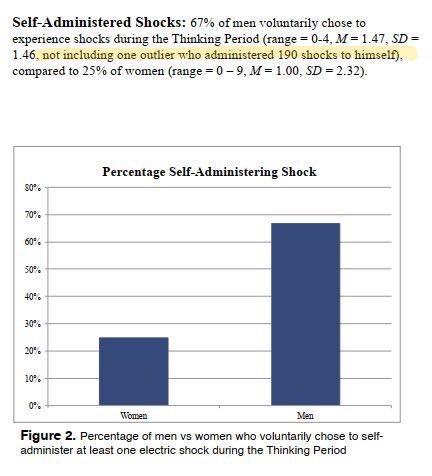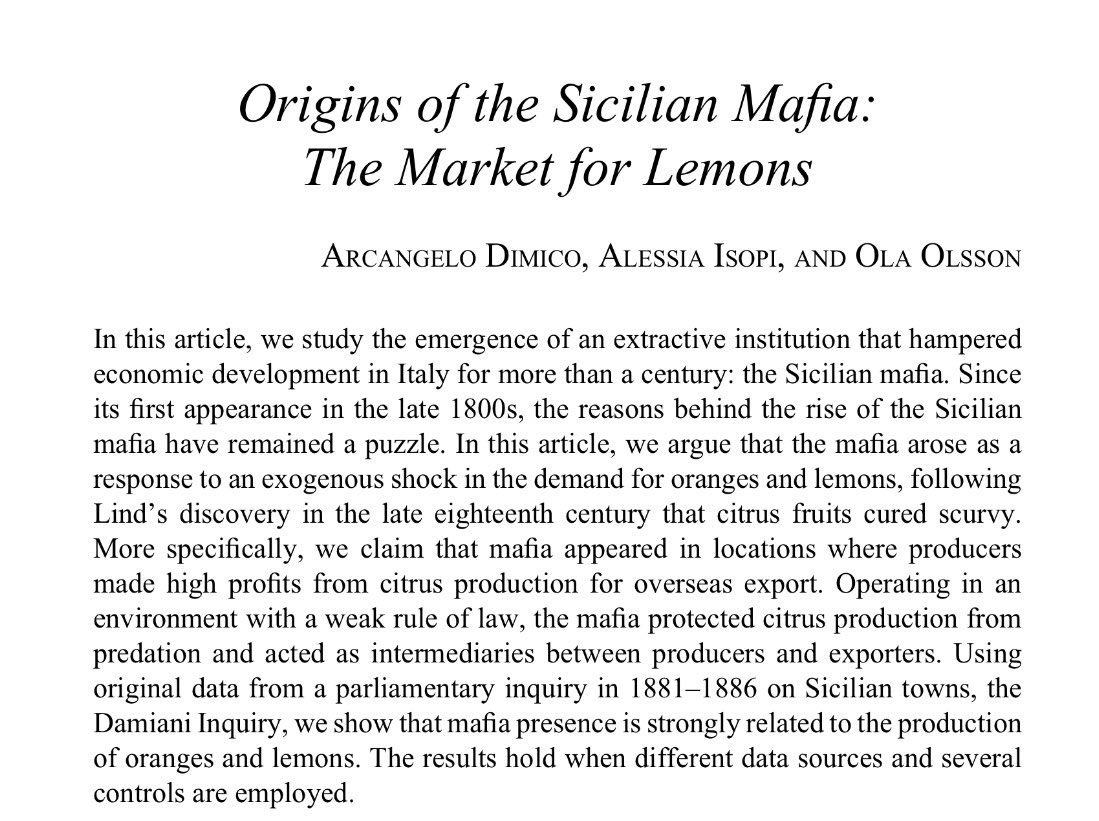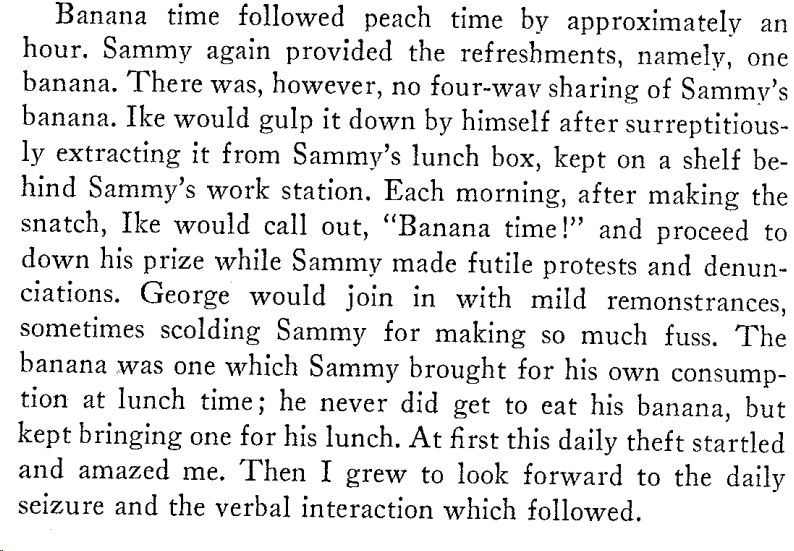
A paper I think about all the time: In an experiment where people are asked to sit quietly for 15 minutes & enjoy their thoughts or else self-administer 𝗽𝗮𝗶𝗻𝗳𝘂𝗹 𝗲𝗹𝗲𝗰𝘁𝗿𝗶𝗰 𝘀𝗵𝗼𝗰𝗸𝘀, 2/3 of men and 1/4 of women choose to shock themselves. erinwestgate.com/uploads/7/6/4/… 

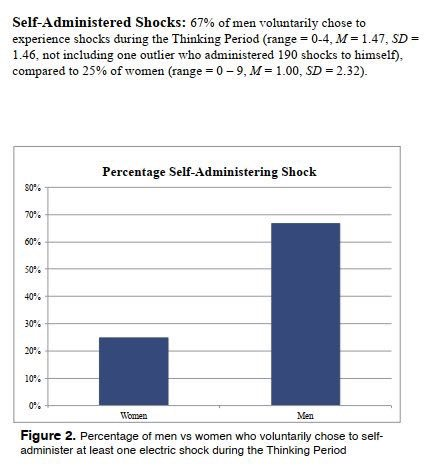
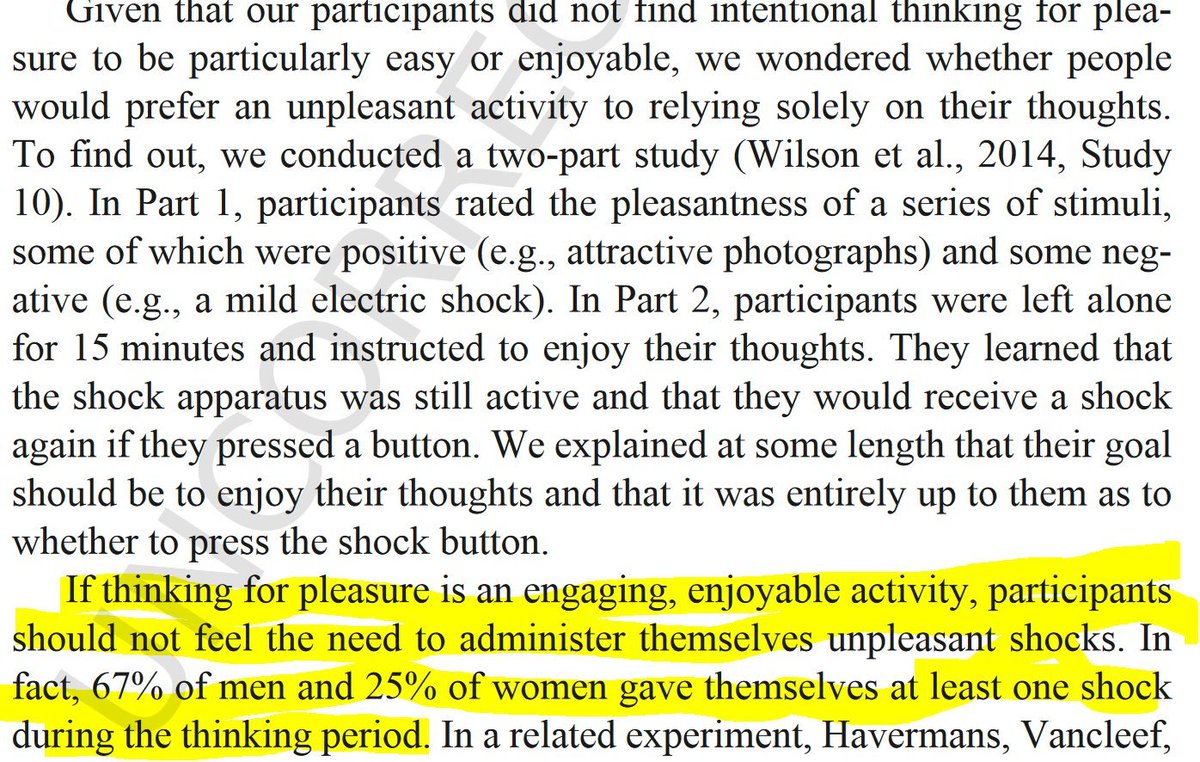
Everyone in the experiment had already had a chance to be shocked, so it wasn’t new to them & they knew it hurt. The experiment is covered more in this neat summary of the research on thinking for pleasure - why it’s good, and why we hate it. nickbuttrick.com/files/Advances… 
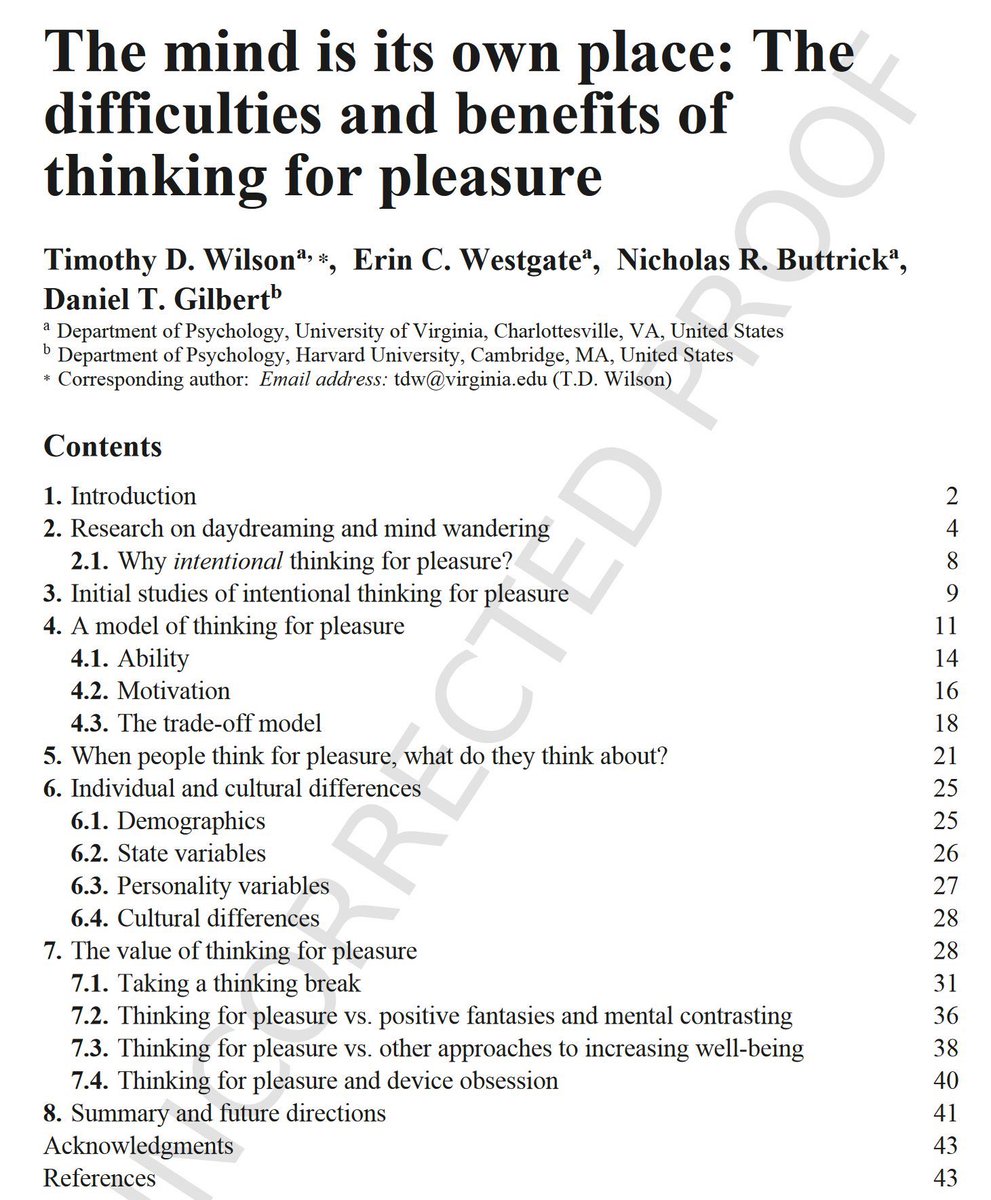
Taking time to reflect turns out to be a very good thing, even if we don’t like to do it. Multiple experiments have shown it is a key to learning. For example, reflection increases retention (by 22% compared to just reviewing what you learned!) & leads to higher grades in school. 



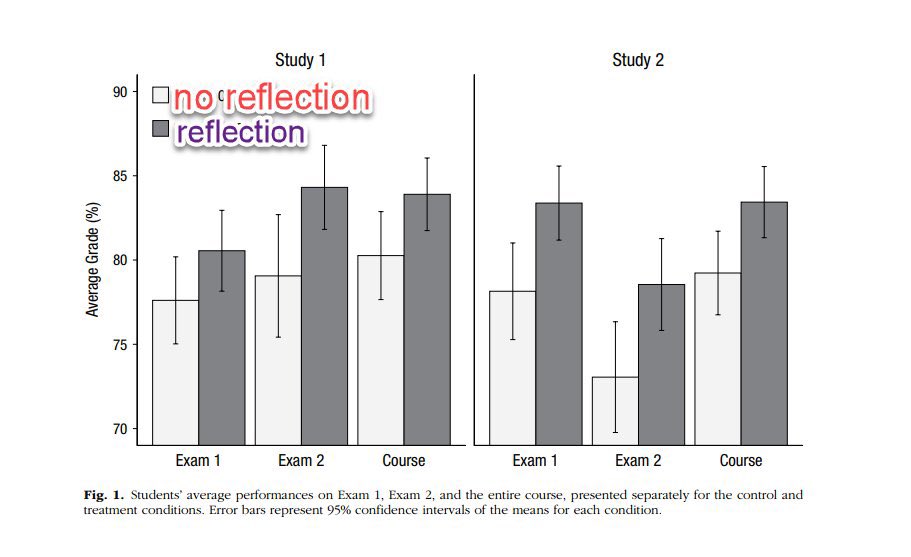
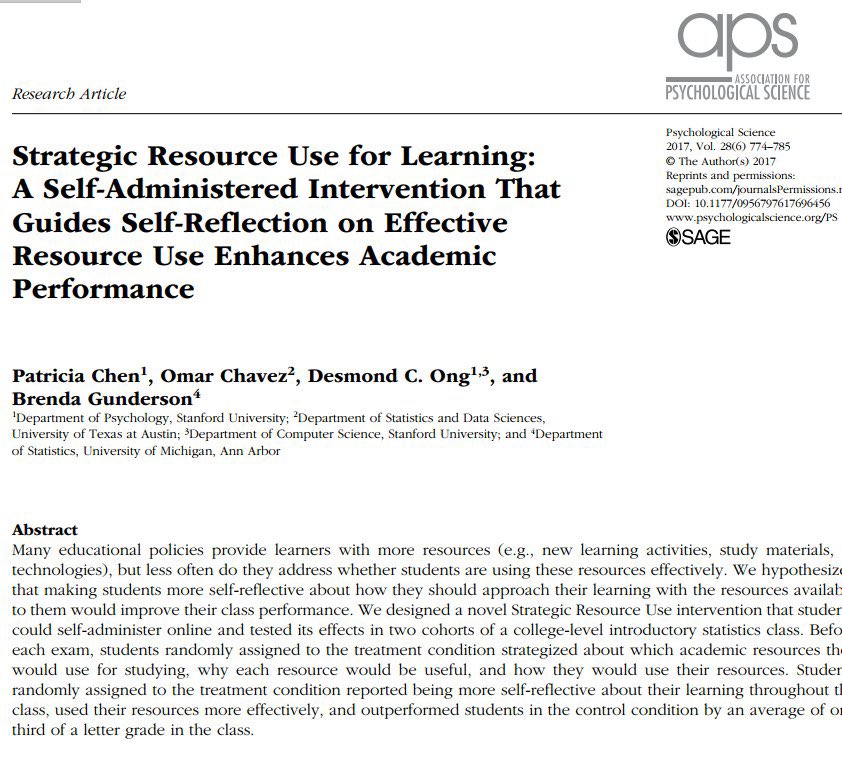
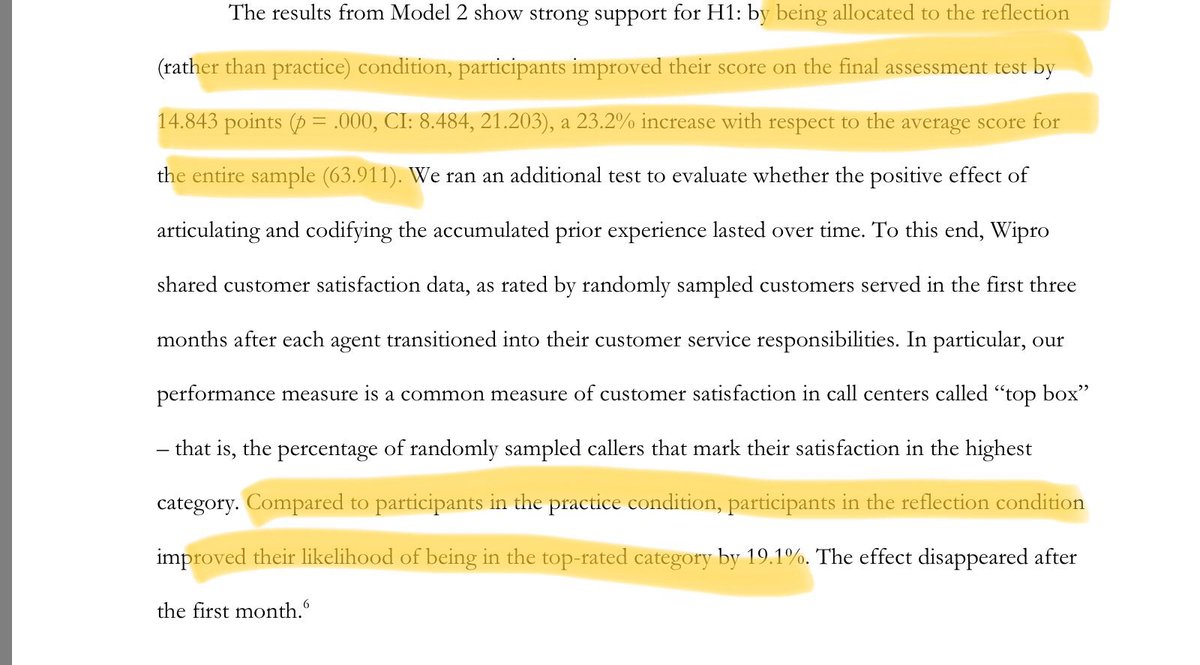
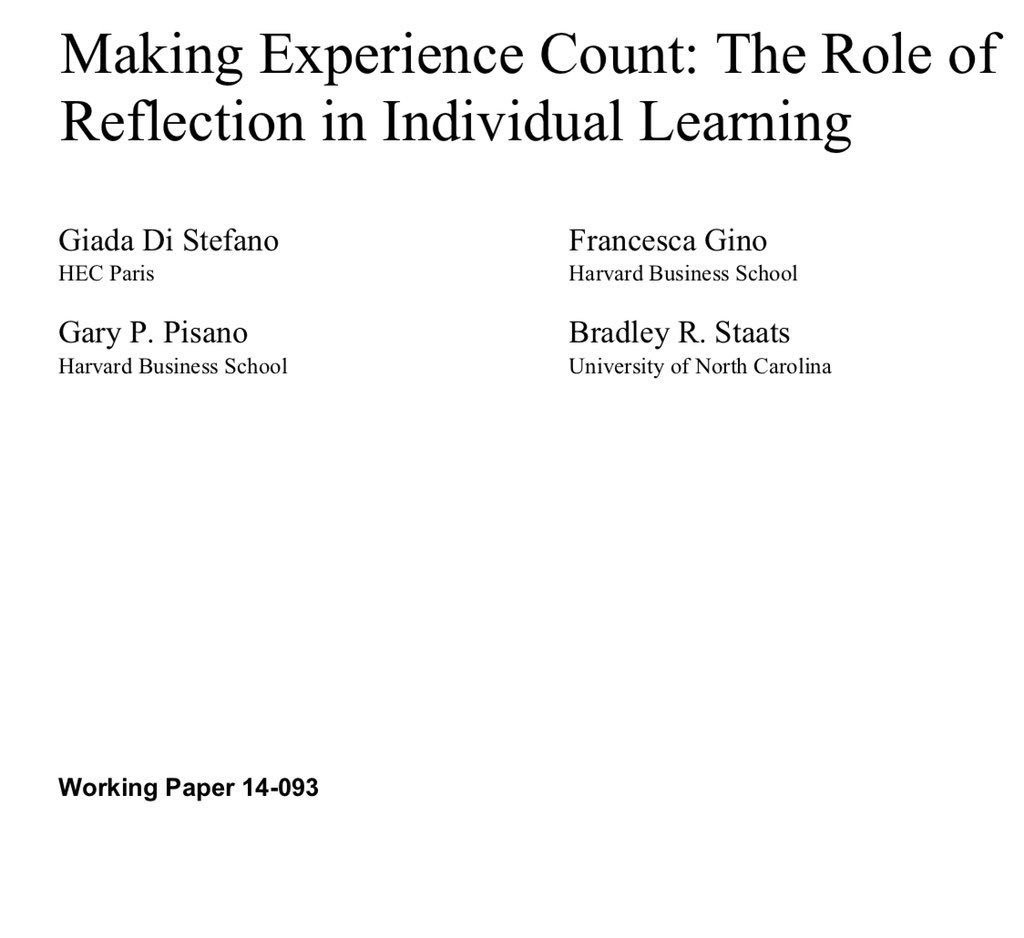
• • •
Missing some Tweet in this thread? You can try to
force a refresh
